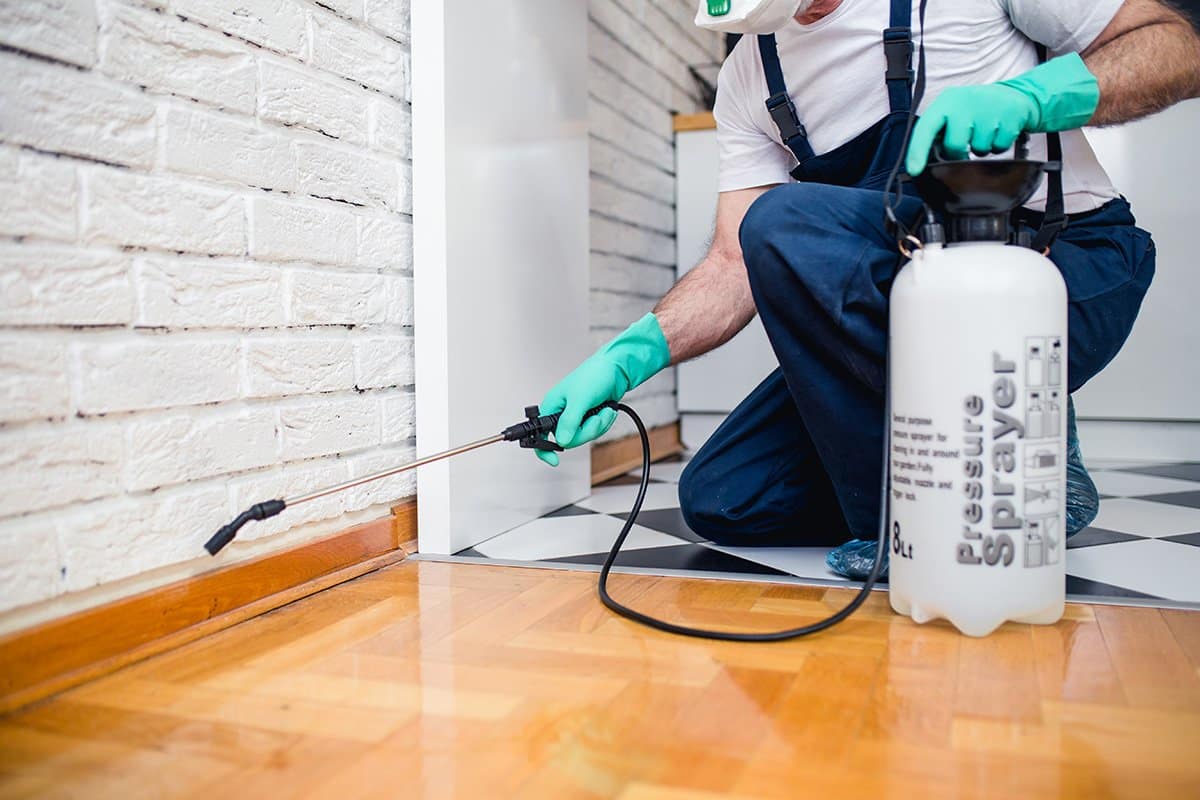Specialist Ant Control Services: Custom-made Therapies for Long-term Outcomes
Specialist Ant Control Services: Custom-made Therapies for Long-term Outcomes
Blog Article
Environmental Effect of Bug Control: Harmonizing Effectiveness With Sustainability
The environmental influence of pest control is an important issue that requires a fragile balance in between accomplishing effectiveness in managing pests and guaranteeing sustainability of our ecological communities. From the use of hazardous chemicals that permeate right into our soil and water to the unexpected effects on non-target species, the consequences of standard insect control methods are far-reaching.
Damaging Chemicals in Bug Control
The application of damaging chemicals in parasite control presents significant environmental and health risks that require careful consideration and mitigation methods. Herbicides, pesticides, and pesticides are commonly made use of to eradicate pests, yet their prevalent application can cause unexpected repercussions. These chemicals can pollute soil, water sources, and the air, affecting not just the targeted bugs however also helpful bugs, wildlife, and human beings.

To address these dangers, integrated bug monitoring (IPM) strategies are being advertised as an extra lasting option. IPM includes a combination of methods such as biological control, habitat manipulation, and the targeted use of pesticides as a last hope (ant control clayton nc). By taking on a holistic approach to pest control, we can minimize the environmental and health and wellness influences related to harmful chemicals while effectively managing pest populaces
Influence On Non-Target Types
Considering the unintended consequences of insect control methods, the influence on non-target types is a critical aspect that calls for comprehensive evaluation. While parasite control measures intend to target certain insects, various other organisms in the ecological community may be accidentally impacted. Non-target varieties, including advantageous insects, birds, creatures, and also plants, can endure indirect or direct damage from pesticide applications or organic control techniques.
Pesticides can have lethal or sub-lethal effects on non-target varieties. Insecticides developed to fight a particular insect pest might harm pollinators like bees or natural predators such as ladybugs. Furthermore, chemical deposits can gather in the setting, impacting non-target microorganisms with time. Biological control agents, if not species-specific, can present risks to unexpected targets, disrupting the eco-friendly balance.
To alleviate the effect on non-target species, integrated parasite monitoring (IPM) methods that stress an all natural technique to pest control are recommended. These approaches prioritize the usage of eco-friendly methods, minimizing damage to helpful microorganisms while properly taking care of pest populaces. Carrying out complete threat analyses and keeping track of the results of parasite control efforts are essential steps in safeguarding non-target types and advertising overall ecological community health.
Dirt and Water Contamination
Unplanned ecological consequences of parasite control methods extend beyond influencing non-target types, with considerable implications for dirt and water contamination. Pesticides, herbicides, and chemical plant foods utilized in pest control can seep right into the dirt and infect groundwater, posing a risk to both terrestrial and marine environments. Soil contamination can interfere with the balance of bacteria crucial for nutrient cycling and plant growth, resulting in decreased soil fertility and productivity. These chemicals can persist in the environment for extensive periods, accumulating in the dirt and potentially going into the food chain.
Water contamination is one more crucial concern associated with pest control techniques. To mitigate dirt and water contamination from pest control tasks, incorporated parasite monitoring approaches that prioritize sustainability and lessen chemical inputs are crucial.
Air Contamination From Chemical Use
Exposure to airborne pesticides throughout farming applications presents a significant problem for air pollution control procedures. Additionally, pesticide drift, where chemicals are carried by the wind to unexpected locations, can lead to the contamination of close-by communities and water bodies.

Methods for Sustainable Insect Control
In the world of farming practices, carrying out lasting insect control approaches is critical for keeping ecological equilibrium and safeguarding crop returns. Sustainable bug control highlights using eco-friendly techniques to handle pest populations effectively while reducing damage to non-target organisms and environments. Integrated Parasite Administration (IPM) is a commonly embraced strategy that incorporates organic, cultural, physical, and chemical control techniques to achieve lasting insect management remedies.
One secret strategy in lasting insect control is advertising biodiversity within agroecosystems. By boosting natural opponents of bugs, such as killers and parasitoids, farmers can decrease the demand for artificial chemicals. Plant turning and diversification are likewise efficient techniques to interrupt pest life process and develop less desirable conditions for pests to prosper. Furthermore, utilizing pest-resistant crop varieties and employing methods like trap cropping can help in reducing parasite stress without counting greatly on chemical treatments. Ultimately, by integrating these lasting bug control strategies, farmers can achieve a balance between pest management efficiency and environmental stewardship.
Conclusion
Finally, the environmental impact of parasite control techniques need to be very carefully thought about to balance efficiency with sustainability. Damaging chemicals used in pest control can bring about soil and water contamination, air pollution, and harm non-target varieties - ant control services. It is vital to carry out sustainable pest control approaches to reduce these negative results on the environment and advertise a healthier ecosystem for future generations
By taking on a holistic technique to pest control, we can decrease the environmental and health and wellness influences associated with damaging chemicals while properly managing pest populations.

To alleviate the air pollution triggered by pesticide use, it is vital to take on integrated insect monitoring approaches that prioritize the use of non-chemical parasite control methods, such as plant turning, natural killers, and immune crop ranges. Lasting insect control emphasizes the use of eco friendly approaches to handle pest populaces effectively while decreasing harm to non-target microorganisms and environments. Integrated Insect Management (IPM) is a widely embraced method that integrates organic, cultural, physical, and chemical control website here approaches to accomplish long-term parasite administration services.
Report this page